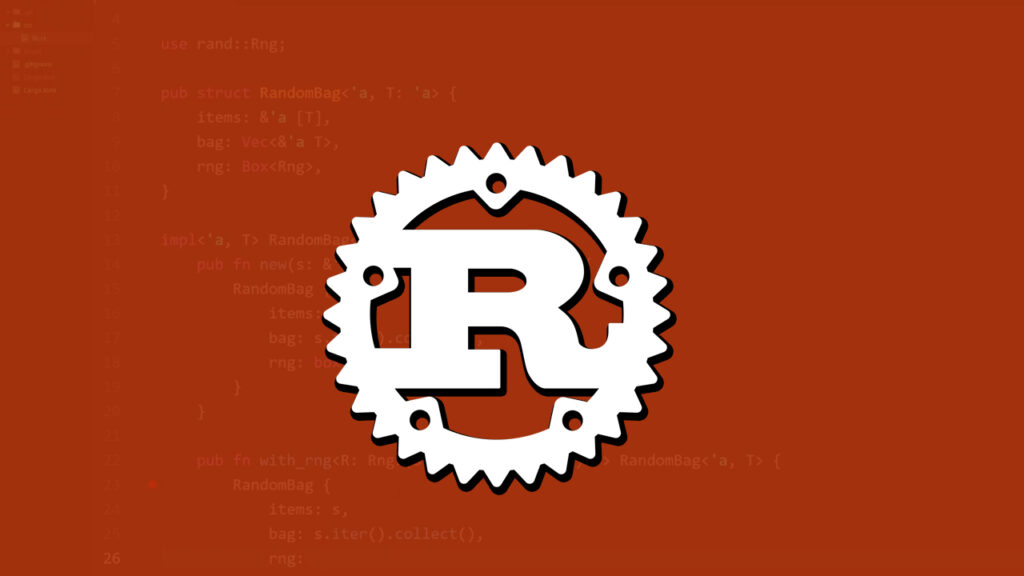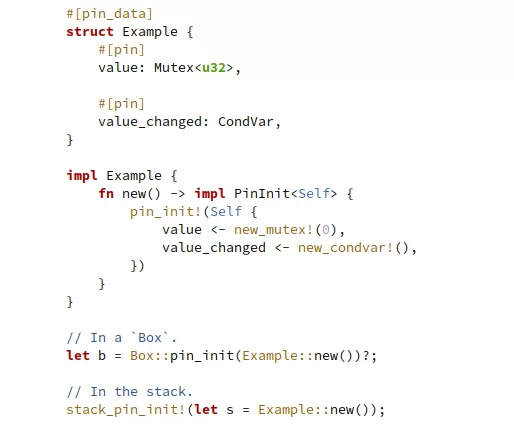RUST
WHAT IS RUST?
- Rust is a systems programming language designed as a safe alternative to languages like C and C++, offering memory safety, concurrency, and performance.
- It features a unique ownership system that enforces strict rules on memory management, preventing common errors such as null pointer dereferences and data races.
- Rust has a modern and expressive syntax, including powerful features like pattern matching and algebraic data types, enabling developers to write clean and efficient code.
- It is commonly used for building low-level software, network services, embedded systems, and high-performance applications that require a balance of safety, concurrency, and speed.

USE OF RUST
- Rust is used for systems programming, enabling the development of efficient software for operating systems, firmware, and device drivers.
- It is employed in web development, offering frameworks that provide high concurrency and security for building scalable web applications and APIs.
- Rust is utilized in networking and distributed systems, allowing the creation of robust network protocols, servers, and distributed applications.
- Game developers use Rust for its performance benefits and safe concurrency, building high-performance cross-platform games.
- It is well-suited for embedded systems development, enabling the creation of firmware and drivers for microcontrollers and IoT devices.
WHAT ARE THE FEATURES OF RUST?
Memory Safety – Rust guarantees memory safety by enforcing strict ownership rules, preventing common issues like null pointer dereferences, dangling pointers, and data races. It eliminates the need for manual memory management and ensures secure and reliable code.
Concurrency – Rust provides built-in concurrency features, including lightweight threads called “async tasks” and the async/await syntax. These features allow developers to write efficient and concurrent code, taking advantage of modern hardware without sacrificing safety.


Zero-cost Abstractions – Rust allows developers to write high-level, expressive code without sacrificing performance. It provides zero-cost abstractions, meaning that high-level code can be compiled to equivalent low-level code with minimal runtime overhead.
Pattern Matching – Rust includes a powerful pattern matching syntax that enables developers to handle complex data structures and control flow scenarios concisely. It simplifies code logic and enhances readability, making it easier to write robust and maintainable programs.
Ownership and Borrowing – Rust’s ownership system ensures that only one owner can mutate data at a time, preventing data races and concurrency issues. Borrowing and lifetimes allow for safe and efficient sharing of data without sacrificing performance.
THE BENEFITS OF LEARNING TO CODE WITH RUST
Versatility and Portability – Rust’s cross-platform compatibility allows code to run on different operating systems and architectures. Learning Rust enables you to develop applications that can be easily deployed on various platforms, expanding your reach and potential user base.
Strong Ecosystem and Tooling – Rust has a thriving ecosystem with a growing number of libraries, frameworks, and tools. Learning Rust gives you access to a rich set of resources that can accelerate your development process and provide solutions to common programming challenges.
Career Opportunities – Rust’s popularity is on the rise, and companies are actively seeking Rust developers. Learning Rust can open doors to exciting job opportunities and freelance projects, particularly in areas such as systems programming, embedded systems, network services, and high-performance computing.
Problem-Solving Skills – Rust’s focus on memory safety and concurrency encourages a disciplined approach to problem-solving. Learning Rust enhances your ability to analyze and solve complex programming challenges while considering performance, safety, and efficiency.
